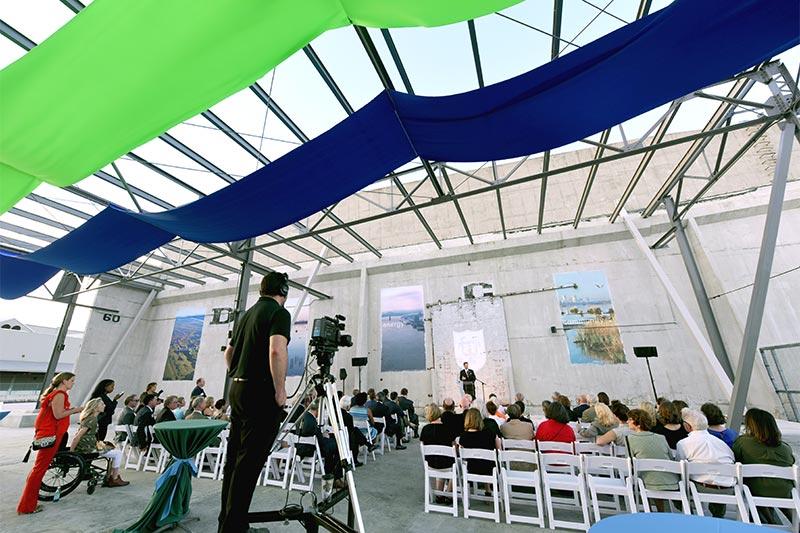Tulane debuts ByWater Institute on a new riverfront campus dedicated to coastal restoration and protection
Tulane University has opened the ByWater Institute and a new riverfront campus in downtown New Orleans dedicated to studying and protecting Louisiana's vital waterways and coast.
The Institute will bring scholars from across disciplines together to find innovative solutions to one of the biggest challenges facing Louisiana and vulnerable communities worldwide — how to manage threats of rising water from coastal erosion, natural disasters and a changing environment.
The Institute will oversee the new Tulane River & Coastal Center, which will support applied research and outreach to raise public awareness about coastal science, restoration and water management. It will host conferences and university courses, as well as lectures and seminars for professional accreditation. In serving as a public forum for community engagement, the center will help promote economic development by spurring academic-industry and public-private collaborations.
“We are located next to the Mississippi River, which is silent, powerful and constantly changing. For us at Tulane, we have existed in the shadow of the river for 182 years and now we finally have a facility on the river banks,” Tulane President Mike Fitts said during the dedication for the facility on Wednesday evening. “There isn’t a more appropriate location for the ByWater Institute and there isn’t a more appropriate university to take on this research than Tulane. The survival of our region depends on negotiating our relationship with water.”
The 5,800-square-foot facility is located at the Robin Street Wharf between the Port Authority and Mardi Gras World on the Mississippi River. It will include staging areas for field operations and support efforts such as the Mississippi River Observatory, a water quality monitoring network that provides real-time data on the river as it flows past New Orleans.
“The purpose of this building is to increase capacity for coastal restoration and protection, and to increase awareness of local community needs,” said Mike Blum, Tulane associate professor of ecology and evolutionary biology. “There are a lot of different dimensions to this building, starting with research, education and outreach.”
Plans eventually call for redeveloping the entire wharf into a riverfront promenade alongside a research and education district that dovetails with the Morial Convention center as well as nearby residential, commercial and retail development.
The architect for the Institute was Eskew+Dumez+Ripple.

